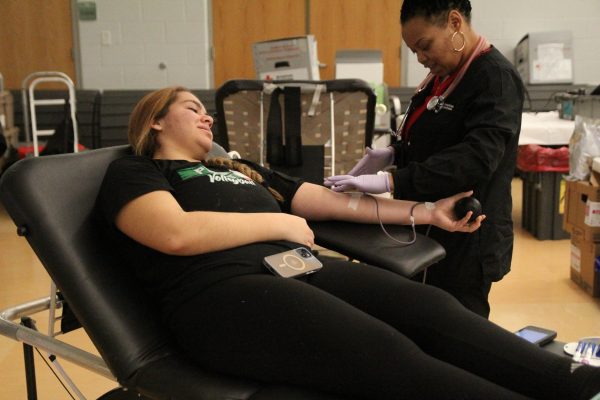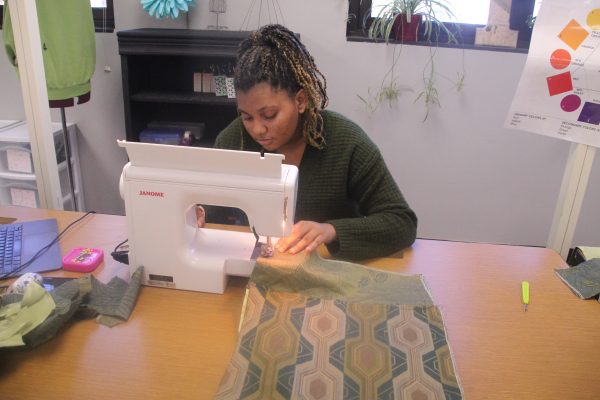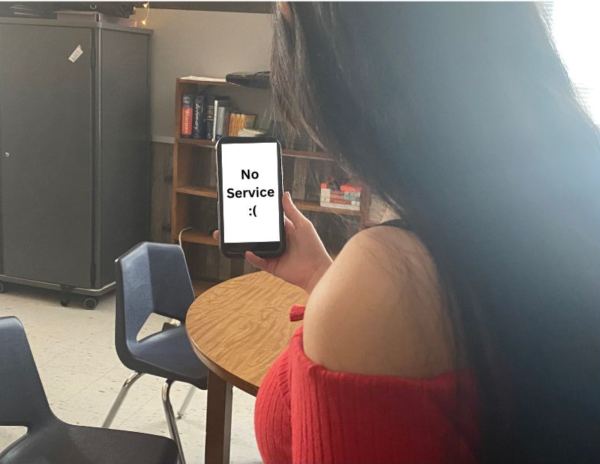Social Media Integrating Into Daily Life: For Better or For Worse?
In January 2020, 44% of all internet users in the United States stated they had been harassed online. Offensive name-calling was the most common sort of online harassment, accounting for 37% of all cases.
May 27, 2022
As social media becomes more integrated into daily life, it is critical for children and young people to learn how to communicate online in order to prepare them for future careers and to help them interact with peers and adults. They also need to learn how to be safe online.
Recently, TikTok has become one of the most popular social media platforms for teenagers. While teenagers are able to have a larger platform, it calls for a lot of responsibility. Anybody can have access to social media accounts and everything posted can be traced back to the user.
While it has become apparent that social media has more than a few negative impacts, the positive effects often get overlooked.
Social media platforms such as TikTok offer alternate methods of communication. Between creating videos, tagging friends, and DMs, social media allows for a sense of community. With what started as groups on Facebook and has now turned into communities on TikTok such as “BookTok,” users can connect over similar topics of interest. They can also allow users to connect with a much larger audience with varying perspectives and experiences.
“TikTok has helped me make friends and connect with people not only in my community but in other states and cities,” Riley Johnston said. Johnston has been on TikTok since 2020 and has a total of 15 thousand followers from all over the world.
Social media platforms are not only used for public entertainment but also to spread awareness about social justice topics. TikTok has become a safe space to comfortably talk about struggles and trauma. It provides a place to speak out about personal experiences in a way that isn’t personal or through the court systems, which can make it easier for some to open up about these issues and take a stand.
Recent trends on TikTok showcase people coming forward about their experiences with sexual assault. In light of the recently leaked document about the US government possibly overturning Roe v Wade, people around the country have taken a stand. They have stepped up, discussing cases that weren’t reported or proven in court. The trends allow users to discuss these topics in a more open forum that wasn’t available to previous generations, as well as give a community approach to social justice issues.
“I believe that if used in the right way, social media apps like TikTok can be a good tool,” Officer Mark Storer, SRO officer at Pattonville, said.
Although the internet has had many beneficial impacts on the world, it is apparent that it can be dangerous. A digital footprint is information about a person that exists on the internet as a result of their online activity. The digital footprint follows people throughout their lives. Because it can’t be erased, it can be detrimental.
“Students often get caught doing things they shouldn’t do on social media. Such as drinking, gossiping, and bullying,” Pattonville High School assistant principal Dr. Fitzgerald said.
Getting caught abusing social media like this can be extremely difficult to recover from. Some companies and colleges review personal social media accounts in the process of acceptance. According to a 2017 survey administered by the American Association of Collegiate Registrars and Admissions Officers, 11% of respondents said they “denied admission based on social media content” and another 7% rescinded offers for the same reason.
Furthermore, the internet is filled with online predators. It is beyond easy to get scammed and cat-fished on the internet. According to Traffickers Abusing Online Technology, the UN crime prevention agency warns approximately 40% of sex traffic victims are recruited online. Predators online can also find personal information based on your social media. It can be extremely dangerous and social media users need to be incredibly careful with the information they share online.
Social media is the easiest way to connect with peers and family but can also be extremely perilous. Thinking before you post and being careful of what you post, is the best way to stay safe and positive on the internet.












